Memories of Brugge: On Time & Being a Loser
That day in Brugge marked a major turning point in my relationship with my parents, my self-esteem, and how I think about time.
Memories of Brugge: On Time & Being a Loser
On a map it looks tiny, but Belgium holds a special place in my heart. My connection to Belgium dates back to the late-1990s, when I spent a year there working for a multimedia company.
It was a formative time in my life, and one day in particular — visiting the medieval city of Brugge with my parents—marked a major turning point in our relationship, my self-esteem, and how I think about time.
Despite being a straight-A student, from my teen years onward, my parents made it clear that I was a disappointment. To them, my creative pursuits — such as music, writing, even owning my own coffeehouse — were foolish. They wanted me to get a “real job.”
Over the years, my mom called me a loser more times than I can count. For some reason, she’d often claim that the only real job I’d ever get would involve pumping gas! I laugh about it now, but her words stung at the time. It was a harsh critique (and oddly specific) but her words lingered in my mind.
A Rare Day Off in Brugge
As much as I loved living in Belgium, my work there involved relentless deadlines. My job at the multimedia company demanded long hours, and our team often worked late into the night and over weekends to meet project goals. Sightseeing was a luxury I rarely indulged in — there just wasn’t time.
So there I was, living in Belgium, with a salaried position in a growing field, when my parents flew over to visit. I couldn’t spend much time with them during the workweek, but that weekend, we took a train from Antwerp to Brugge.
It was gorgeous! Spring was in full bloom, and the medieval city welcomed us with open arms. Tree-lined canals shimmered with sunlight, and blossoms adorned the cobblestone streets. It felt like stepping into a storybook.
The Lace Shop Incident
During our casual wandering, my parents and I found a lace shop. Although celebrated for its chocolate, Belgium is also renowned for lacework. We spent quite a while in the little store, admiring the intricate designs, and marveling at the skill required to create them.
Curious, my father innocently asked the shopkeeper, “How long did it take to make this?”
Her reaction was swift and sharp. “When speaking of high-quality lace,” she replied curtly, “we do not discuss it in terms of time.”
After leaving the shop, we found our way to an outdoor cafe, where we discussed the shopkeeper’s reaction. The incident made us realize how deeply ingrained the concepts of efficiency and speed are in the modern mindset, especially in America.
Yet there in Brugge, time was irrelevant in the context of craftsmanship. The shopkeeper’s response carried a subtle lesson: some things in life aren’t meant to be measured in hours or minutes—they’re meant to be appreciated for their artistry and care.
It was during that day in Brugge, too, that I finally enjoyed my first taste of an authentic Belgian waffle. It was a crispy, golden treat topped with a dollop of real whipped cream and a drizzle of dark chocolate. One bite made me realize exactly what all the fuss is about.
As I sat at that café with my parents, savoring this quintessential Belgian dessert, I found myself basking in more than just the flavor of the waffle.
Time and Timelessness
That day in Brugge remained a stark contrast to the rest of my year in Belgium, where time was the ultimate taskmaster. Deadlines at the multimedia company were relentless, and every project was a race against the clock.
Even now, nearly 30 years later, that day in Brugge stands out as a cherished memory, not just because of the beauty of the city but also because of the wonderful time I spent with my parents.
And while nothing was said directly, and my life has taken many twists and turns since that day, after Brugge I never again felt like my parents were ashamed of me. (And no, I never did get a “real job” or “end up pumping gas.”)
Big lessons in a tiny country
As you can tell, despite the wintry weather, my recent visit to Brugge with Larry brought back vivid memories of that beautiful spring day. Sadly, my dad has since died and my mom no longer travels… but oh how I’d love to wander the streets of Brugge with them again.
Belgium may be a tiny country, but it taught me lessons that loom large: to appreciate the artistry of life, and remember that some moments are beyond the grasp of time.
If you ever visit Brugge (or Bruges, if you prefer), I hope you can savor it. Wander its canals, admire its lacework, and take a moment to simply be—without the constraints of a ticking clock.
p.s. What’s in a Name? Brugge vs. Bruges
P.S. By the way, while most foreigners call the city “Bruges” locals call it “Brugge.”
The distinction stems from Belgium’s linguistic divide. The northern region, Flanders, is where Flemish (a dialect of Dutch) is spoken, so that’s why the city is officially called Brugge.
Meanwhile, in the southern, French-speaking region of Wallonia, the name Bruges is more commonly used.
Belgium’s north/south divide is no small matter—it reflects the country’s deep-rooted cultural and political differences. I lived in Antwerp, a Flemish-speaking city, but commuted daily to Brussels, where French dominated. The office was English speaking, so I learned more Flemish than anything else.

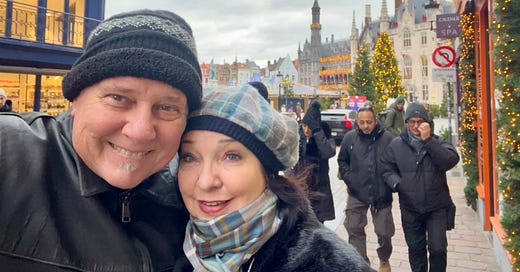



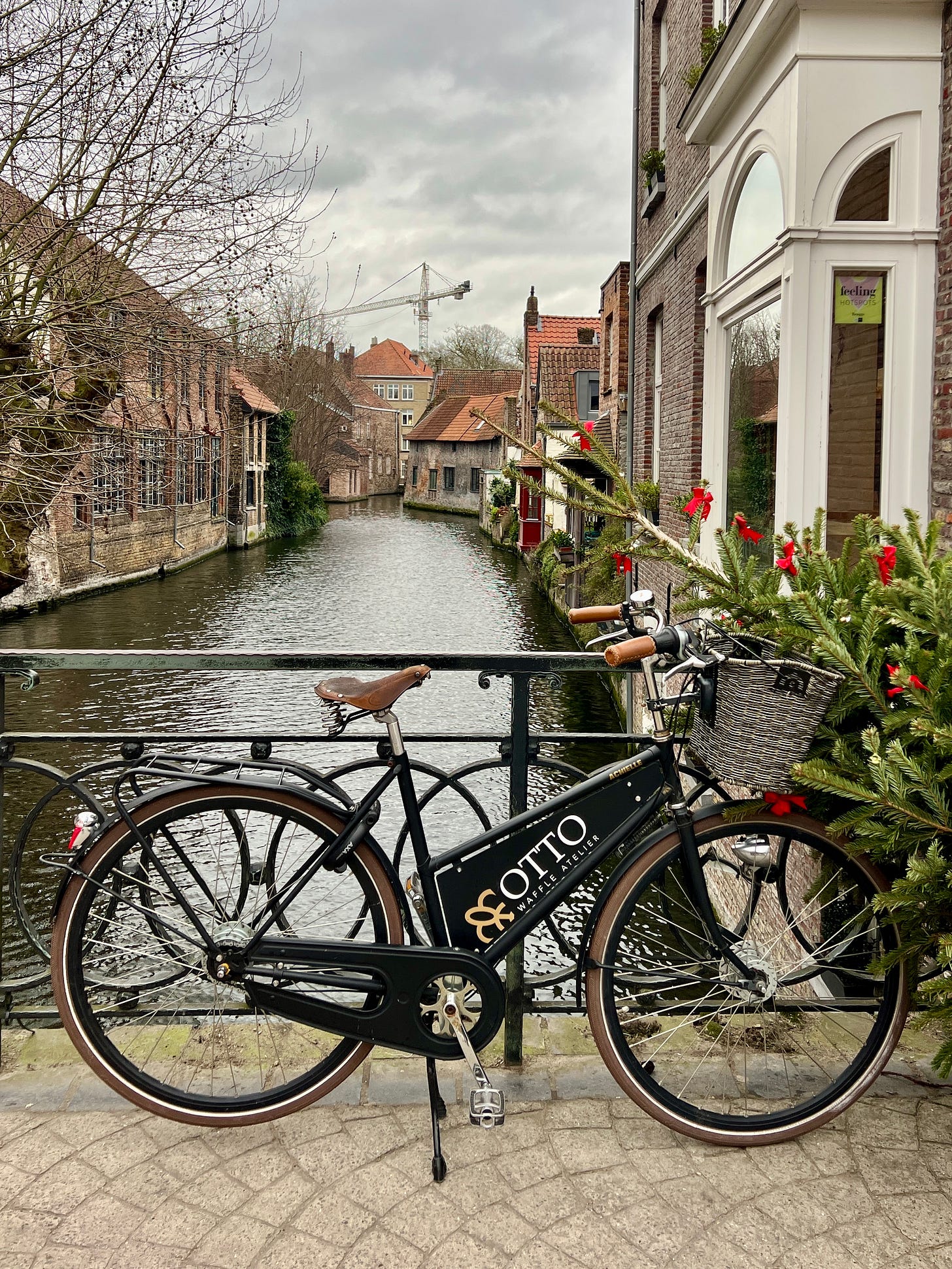
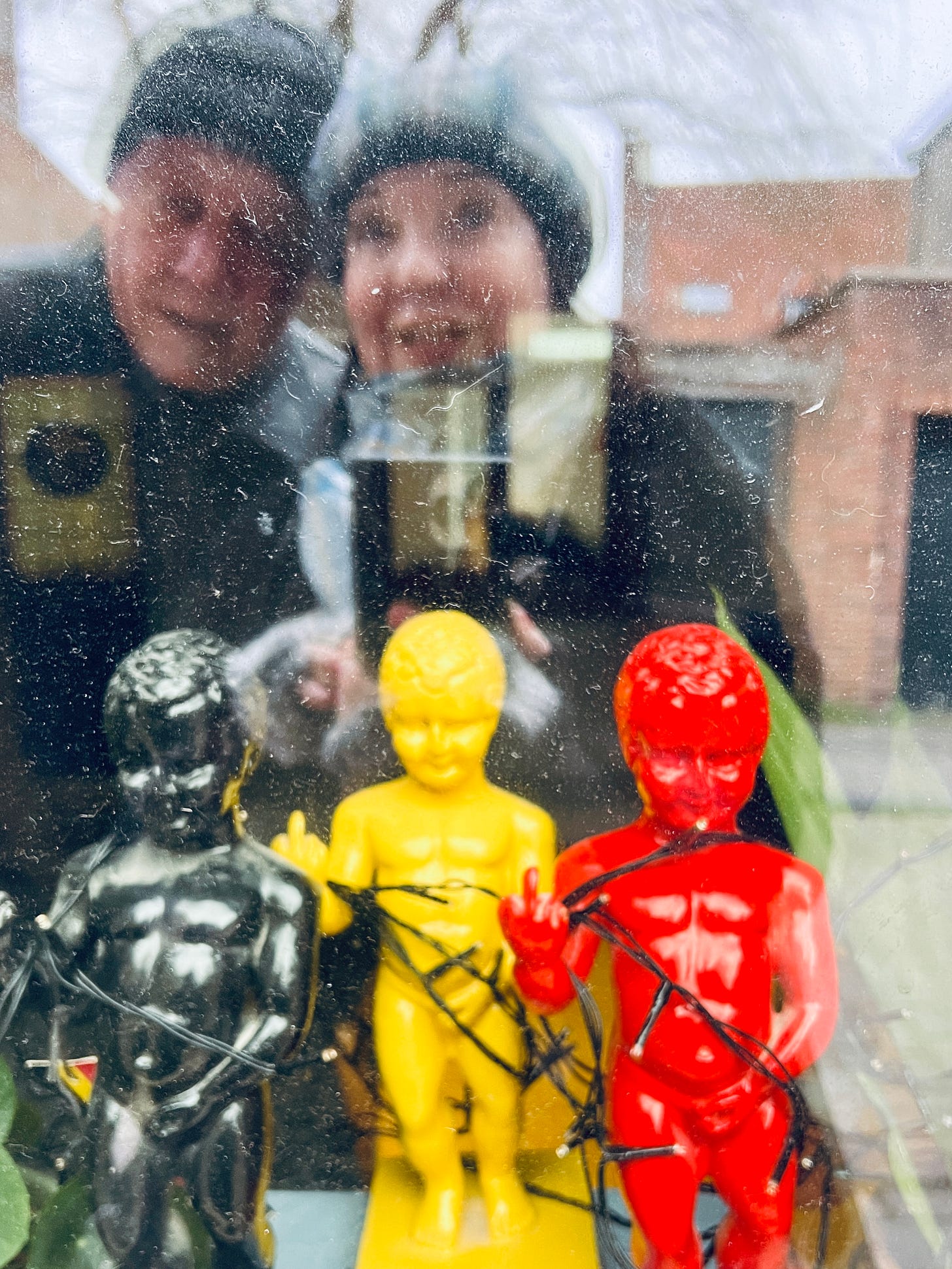
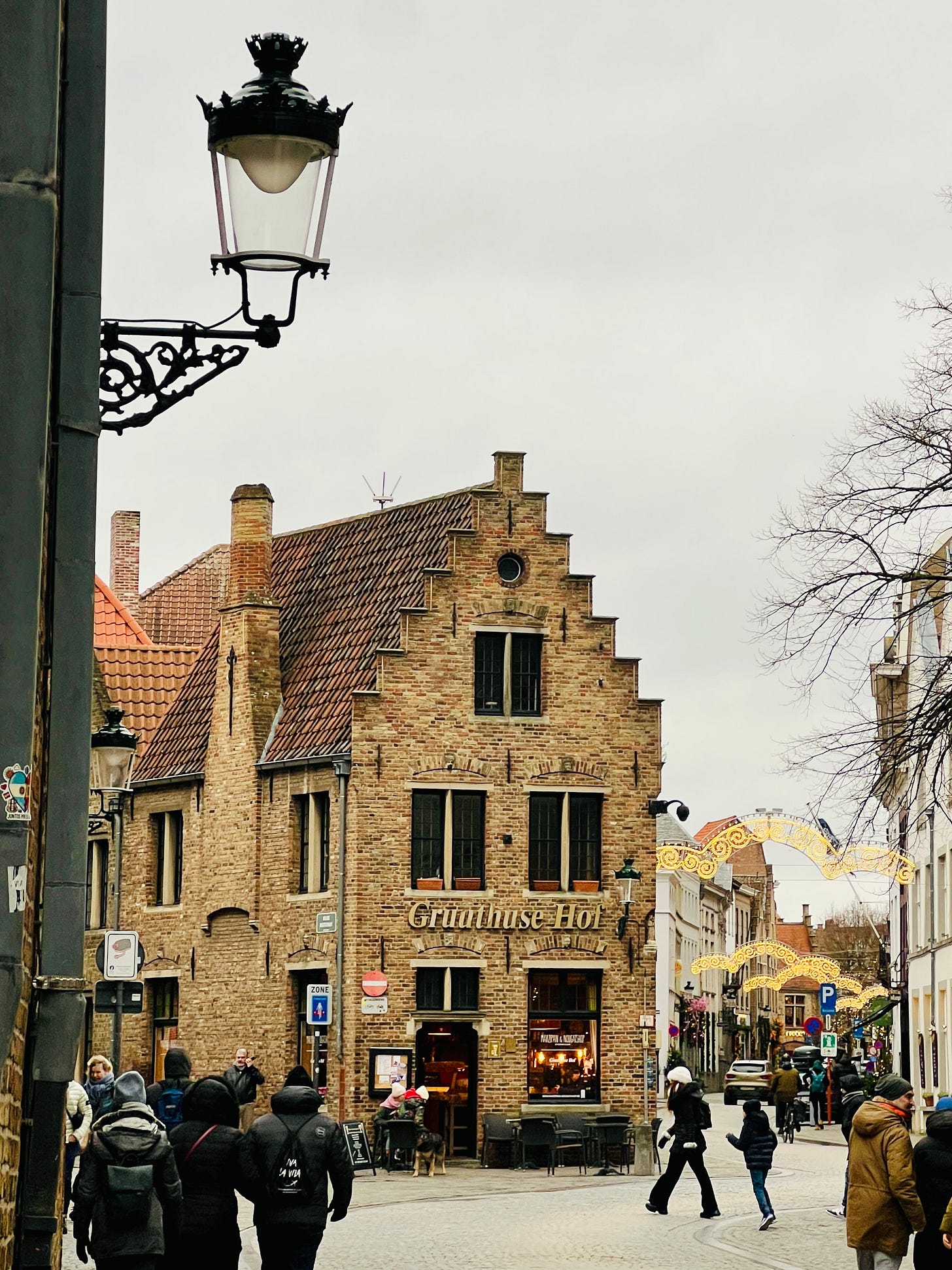

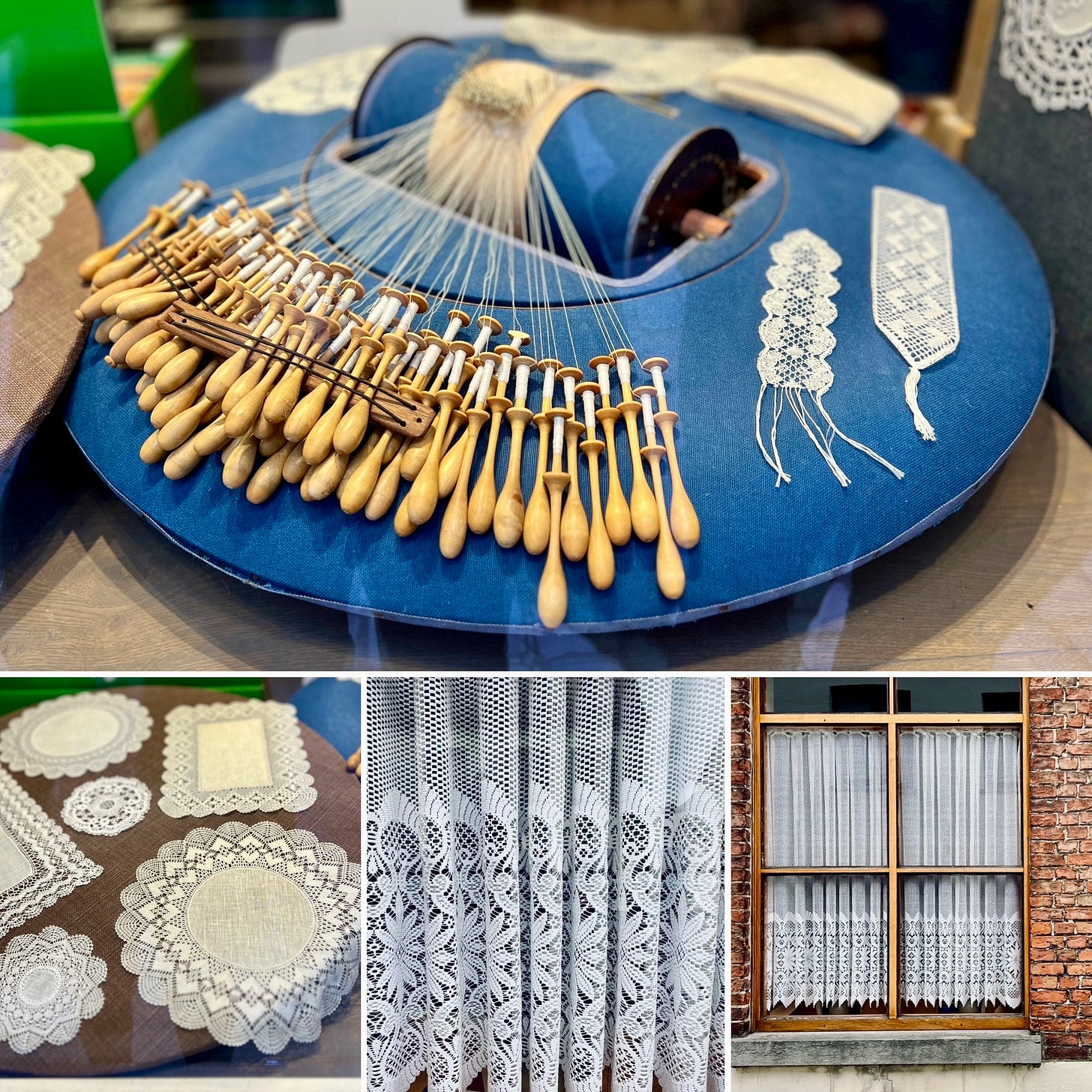

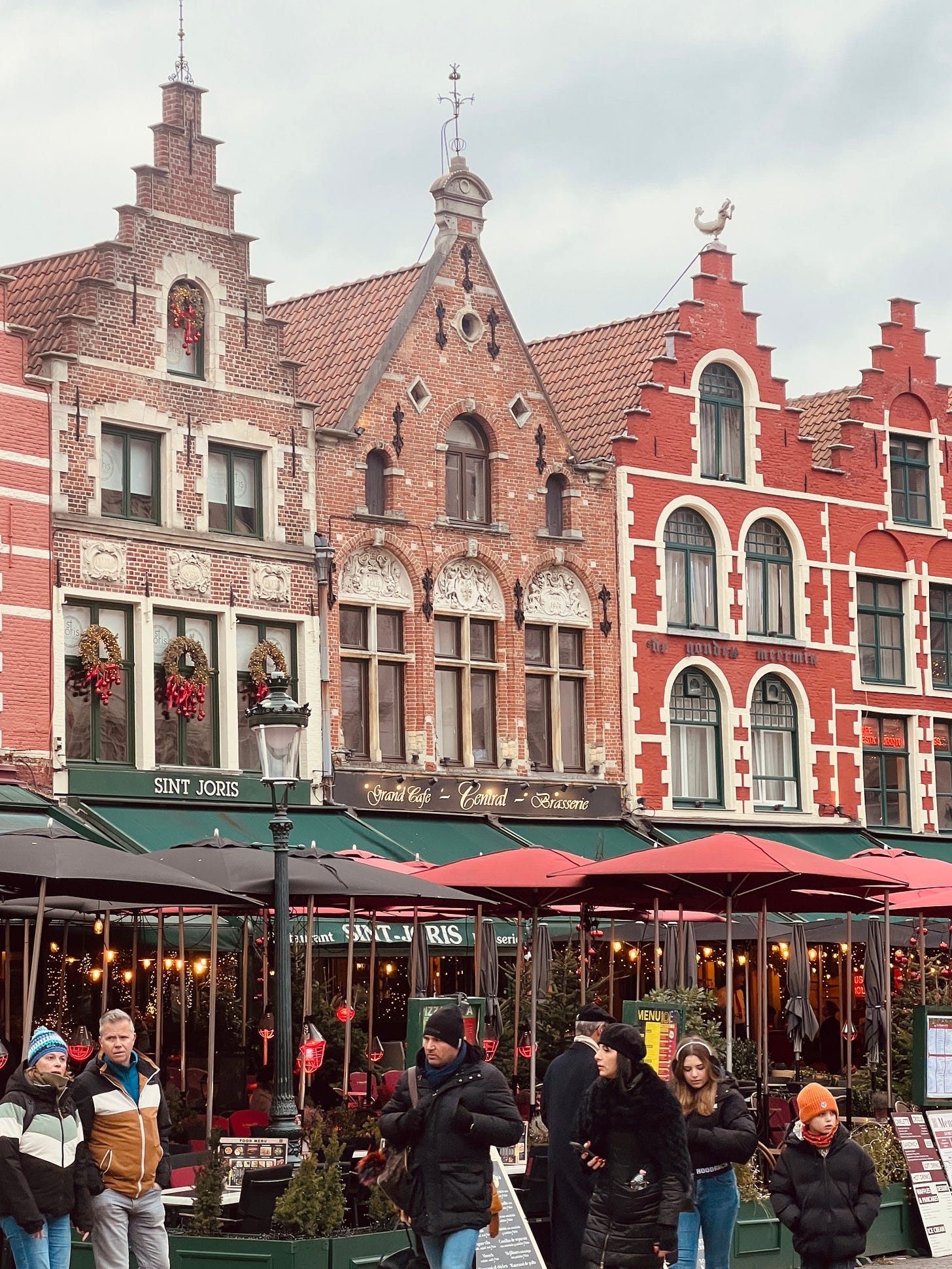
This piece brought back my visit to Bruges as a student nurse in the '70's. Thankyou Tui!x
I had a Youtube short pop up in my recommendations one day of an older lady making lace. It was amazing to watch.